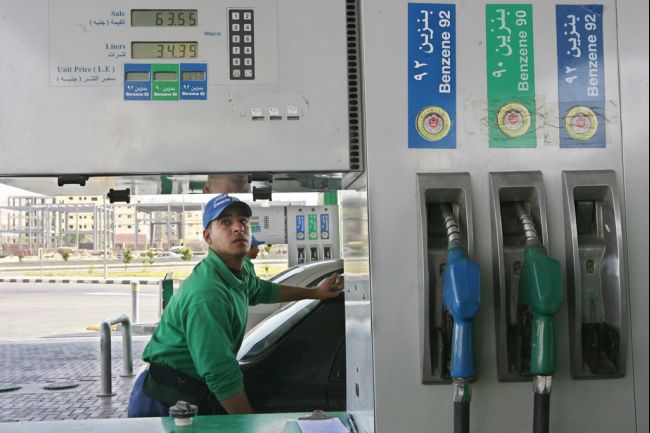The strategic diesel reserves in the Egyptian General Petroleum Corporation’s (EGPC) warehouses are enough to cover the domestic market’s needs for five days; furthermore, shipments will continue to arrive to Egyptian ports regularly, corporation chairperson Tarek El-Hadidi said.
He told Daily News Egypt that Aramco will supply Egypt with 12 diesel shipments a month, according to a contract for the provision of petroleum materials, in addition to other quantities that are being supplied through periodic tenders.
El-Hadidi said that Egypt’s consumption of diesel is estimated at 40,000 tonnes per day. No instructions have been received to increase the price of any kind of petroleum products in the local market.
He explained that the subsidy allocated for this fiscal year’s (FY) budget declined to roughly EGP 35bn, according to the Brent Crude price of $40 per barrel compared to EGP 61bn in the budget for (FY) 2015/2016.
The government must meet certain conditions to obtain a loan worth $12bn over three years from the International Monetary Fund (IMF). Public debt must be reduced from 98% of the GDP to 88% in FY 2018/2019. The value-added tax (VAT) must be activated and the energy subsidy reduction programme, which began in 2014, must be continued.
The government began to reduce the energy subsidies in 2014 and increased the price of gasoline 92 by 40%. The price of gasoline 80 was increased to EGP 1.60 per litre, compared to EGP 0.9 previously.
The price of gasoline 95 increased by 7%, while the cost of diesel was raised to EGP 1.80 per litre from EGP 1.10.
The price of natural gas for cars increased to EGP 1.10 per cubic metre from EGP 0.4 previously, an 175% increase.
The IMF said in a statement that the Central Bank of Egypt (CBE) seeks to move to a flexible exchange system in order to enhance its competitiveness, support exports and tourism, and attract direct foreign investment
According to the IMF, the structural reforms target to improve the business environment, stimulate the labour market, simplify regulations, and enhance competition.
El-Hadidi explained that the programme aspires to improve Egypt’s ranking in business reports and enable it to compete globally.



